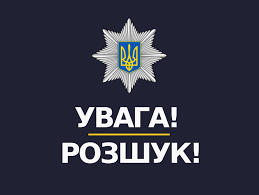I am Mariya Borevich, your personal lawyer. My primary goal is to help clients find optimal solutions to current legal issues, ensuring reliable protection of their interests. I specialize in family, civil, and military law, which allows me to effectively handle a variety of situations and cases. In family law, I provide support in resolving issues related to divorce, property division, establishing and challenging parental rights, alimony, and child custody. I understand that these matters are often emotionally complex, so I always strive to find the most delicate and fair solutions for all parties involved. In civil law, I assist in settling disputes related to contracts, property rights, compensation for damages, inheritance, and other issues concerning the protection of personal and property interests. Special attention is given to military law — supporting servicemen, protecting their rights and interests related to military service, social guarantees, and legal disputes. This area requires deep knowledge and understanding of the specifics of military service and the legislation regulating it.
Search for missing persons during the war is one of the most important and difficult tasks. This requires cooperation between various governmental and non-governmental organizations. Here are some steps and resources that can help with this process:
Steps to find missing in war:
Filing a police report:
The first step is to contact the local police department and officially register the person missing. It is necessary to provide all available information that can help in the identification of the missing person.
Appeal to military structures:
If the missing person is a serviceman, you should contact the command of the unit or higher military authorities.
Cooperation with non-governmental organizations:
Organizations such as the Red Cross are involved in the search for missing persons and can provide assistance in tracing cases.
Appeal to International Organizations:
International organizations such as the International Committee of the Red Cross have the resources and network to assist in the international search for missing persons.
Use of social networks and media:
Social media can be an effective tool for disseminating information about missing persons. Posting photos and information on the Internet can help locate them.
Contact with human rights organizations, resources for searching for missing persons:
International Committee of the Red Cross: The organization has special programs for searching for missing persons.
Platforms for registration of missing persons: There are specialized online platforms where information about missing persons can be posted.
Department of Defense and other military agencies: They may provide information on missing service members. Human rights organizations can also provide legal support and assistance in searches.
In the case of searching for people missing during the war, the help of a lawyer can be extremely important. Lawyers who specialize in human rights, military or humanitarian law can provide important services in the following areas:
Making formal requests to government agencies: A lawyer can help formulate and make legal requests to the police, military or other government agencies for information about a missing person.
Access to official registries: A lawyer can help you gain access to various registries and databases containing information about missing or captured persons.
Litigation: In cases where there are legal obstacles or difficulties, a lawyer can represent the client's interests in court or help resolve legal issues related to the search for missing persons.
Cooperation with international organizations: A lawyer can help establish contacts with international human rights organizations, such as the International Red Cross or the United Nations, which may have important information or have access to resources for locating missing persons.
Filing complaints to international courts: If there is a suspicion of violation of human rights or other international legal norms, a lawyer can help in formulating and filing complaints to international judicial authorities.
Providing information about rights: A lawyer can inform the client about his rights and the procedures related to the search for missing persons, which can help make the search more systematic and effective.
Psychological support and managing expectations: Although not a direct legal service, attorneys with experience in difficult cases can also provide moral support and help manage their clients' expectations during the search for missing persons.
The involvement of a missing persons attorney can greatly improve the chances of success in finding information and can provide the necessary legal and moral support during this difficult time - search for missing people in the Atomic Zone, search for missing persons in war, search for missing soldiers.





























